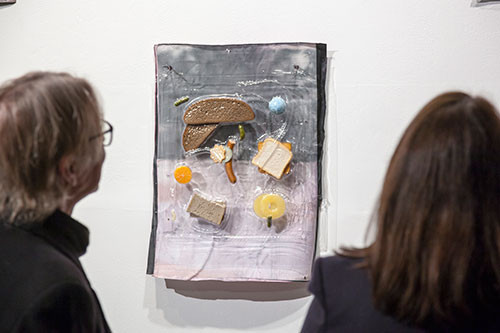
Projekt
Donnerstag 27.02.2014
The Pommel Horse Popo
Buch:
The Pommel Horse Popo By Stefan Burger
72 Seiten + 8 Seiten Leporello
Edition:
Reflux # 1-25 + 7 A.P., 2014
Artist Book and Edition Published by Kodoji Press, Baden, 2013
The Pommel Horse Popo By Stefan Burger
ED. KUNSTRAUM WALCHETURM, 24.5 X 34.5 CM,
72 Seiten + 8 Seiten Leporello
64 FULL BLEED COLOR PLATES, SOFTCOVER WITH STICKER
KODOJI PRESS, BADEN 2013, ISBN 978–3–03747–054–1
Retail Price CHF 36.–
Alliterative and palindromic, Stefan Burger’s artist’s book The Pommel Horse Popo brings together two years of ongoing investigation of the co-existence of human, animate entities and insensate things. Burger avails of a wide range of presentation possibilities, as evinced by the different genres of image the book employs. Its pages include quasi-faithful documentation of exhibition installations, still-lives and collages of scanned materials.
Burger’s photographic practice thrives on incongruity. The subjects repeated throughout the book - tangled piles of squirted fleshy gold and dull grey silicone, perforated frames and mounts, clusters of doorbells making empty lists or the artificial skins that cloak prostheses, for example - are diverse. The topic of prosthetics is raised a second time in a number of photographs recreating experiments cited in a 2011 paper "The illusion of owning a third arm" by scientists at the Karolinska Institutet in Stockholm. During this experiment some participants ‘felt’ visual stimuli of a supernumerary prosthetic limb, such as when they could see it being brushed or threatened by a sharp knife. If skin is both a cosmetic level, of appearance, and a sensory site, the meeting point of body and world, what is artificial skin? The many layers Burger develops are equally contradictory: images are densely overlaid, framed, distanced and deepened, but ultimately communicated via a perfectly flat medium. His still-lives are composed of odd bedfellows: one consists of a wig, deodorant, an egg-shaped candle, scouring pad and two decorative glasses on a shelf. If the objects seem misplaced, worthless even, the latent power of the genre gives the arrangement authority nonetheless.
The seemingly nonsense title The Pommel Horse Popo is in fact revealing. Not only pleasantly rhythmic, Popo, a German term for bottom that a child might use, chimes with the scatological suggestion of the organic heaps of silicone and the numerous orifices also pictured. Here is another push and pull of attraction and repulsion, akin to the junk objects elevated by their still-life settings. And a pommel horse, traditionally animal skinned, is a creature without head or tail and thus like the publication, which can be read from the front or the back. Is it closer to being a horse than a mannequin – several of which also feature – is to being a man? In keeping with ideas of structure and surface, the book’s rigidity comes not from a hard cover but a loose print that is found in its centre that depicts sections of picture frame. These sections are cast to appear like amorphous limbs and the print functions as the book’s skeleton. But to get that far, the reader has to destroy one skin, for the publication is presented within a sealed plastic cover onto which another print is pasted. On this a wooden mask, rough-hewn and smoothed by use, is seen from inside. Through its eyes we glimpse depth the book both delivers and thwarts.
MIT UNTERSTÜTZUNG der Dr. Georg und Josi Guggenheim-Stiftung
REFLUX # 1-25 + 7 A.P., 2014
various food dummies, rope, silicone housed in a thermoformed plexiglas clamshell blister pack with various colored, sized, layered and perforated papersheets
L 71 cm (27.96 inch) x W 51 cm (20 inch) x D 7 cm (2.75 inch), numbered and signed.
Stefan Burger (born in 1977) lives and works in Zurich. He has had solo exhibitions in institutions including the Fotomuseum Winterthur, Istituto Svizzero, Venice, and Kunstmuseum Stuttgart. He has been received several grants from the City of Zurich, the ‚Follow Fluxus Stipendium’, Wiesbaden and in 2010 won the Dr. Georg und Josi Guggenheim-Stiftung Prize.


